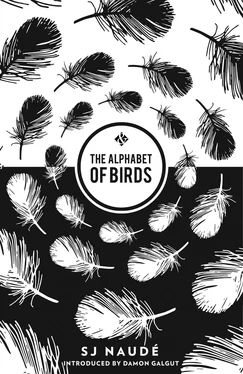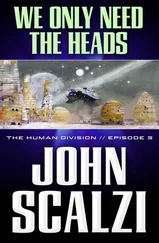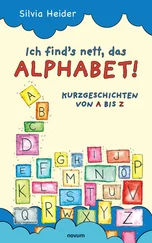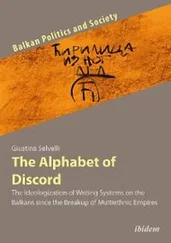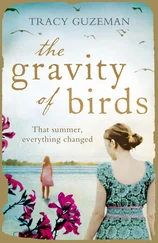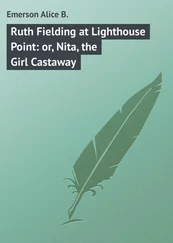He cannot let Sam go, he realises, he can only be in this place if it is with Sam. Sam who has nothing to do with his past here. He can only bear being in this city for so long as the strangeness that Sam is enabling him to feel endures. Sam makes it a different place, a nowhere place. While he is at Sam’s side (Sam with his restless limbs!), he can remove himself in his mind. He is both here and not here.
He and Sam are sitting in a coffee shop, in the kind of artificial shopping-centre environment that passes for public space in this country. He takes Sam’s hand, forgetting for a moment where they are. It takes a while before he notices that people are staring. An echo of his militant younger self returns, when he would have snapped at the starers, but he just smirks, restrains himself. He just puts his other hand on Sam’s as well, shifting closer and hooking his ankles around Sam’s as if this could segue into a dance movement.
When he takes his eyes off Sam’s, Bert is standing there, not far from their table, where he has perhaps been for some time. They look at each other, he and Bert. Bert looks at Sam. Bert turns around and walks away.
It is Sam’s final performance, for the purposes of his studies. His exam. Sam has arranged a complimentary ticket for him. The audience consists largely of family members of the dance students. The performances last far too long, there are more amateurish efforts than one’s concentration can endure. During intermission, he sits alone in the cool air outside.
Sam’s performance follows the intermission. It frightens him. It is the Butoh piece. When the stage lights are switched on, Sam is sitting in a chalk circle. There is nothing else on stage. Like something from modernist photography — an Edward Weston study of the body as abstraction. Sam’s head is bent forward, arms around the knees. Only his rounded back is facing the audience. A solid block. It fragments into a mosaic of muscles. He is moving from his core, minimally, only the individual muscles shifting and twisting. He moves very slowly, with utter control.
He is naked, painted reddish-brown from head to toe. He writhes, wrenches himself away from the stage. A creature from the primordial slime. Caliban from The Tempest . He keeps low against the stage. As he struggles, the paint comes off; he is leaving behind a trail. His mouth is wide open, white teeth bared against the darkness.
After the performance, Sam joins him on a little bench between the theatre and the carpark.
‘Notions of shame and the vulnerability of ideas about the self. That’s what I read into it,’ he tells Sam. ‘But I now realise: no, it’s about the more difficult stuff behind emotions.’
Things that precede emotions, he thinks, for which there are no words. The body as a rock, making marks against a cave wall.
Sam is inscrutable. He looks like an angel of dark glass.
‘It made me feel things that I didn’t know one was allowed to feel,’ is all that Sam has to say. And: ‘It’s the opposite of narrative.’
He weaves his fingers through Sam’s curls, still damp after a shower (for rinsing off the paint). He does not know whether this thing with Sam is moving forward. It seems to be edging loosely sideways, crab-like. From one dance performance to the next. How does one push it into a direction? Perhaps the absence of direction is the idea. Loose shards, infinite performance. The carpark behind them empties out; they are left alone in the fumes. He leans over and kisses Sam on the lips. In silence, on the concrete bench.
The crack of dawn. Near the guesthouse where he is staying, there is a fitness park where Sam wants to stretch, to jog, to engage his core muscles. They go there on the scooter. When they enter it, they are the only ones there, that is, other than the rough sleepers peering from underneath shrubs. Fog hovers in the lower parts. He knows this place from his youth, but now it is different. He feels uncomfortable, unsafe. Sam is not bothered, walking past the eyes in his loose-limbed way. They start jogging. Next to the running paths, there is apparatus for various kinds of exercise, screwed together with creosote poles and steel, now rusting and rotting. He just watches Sam when he stops for his stretching exercises, shakes his head when Sam tries to get him to join in.
They run further. He looks at Sam. So dapper and compact. So full of goodwill, muscle power and New Age clarity. His teeth whiter than ever. When they turn a corner, they are forced to a halt by the scene in front of them. Two bloody feet at eye height. They look up. One can hear the jacaranda branch, from which the body is hanging, creak. Lightly, as the figure is swaying. A rope around the neck. Sam is speechless, starts trembling. He puts his hands around Sam’s shoulders. It is the man from his dream hanging there, he thinks, the Japanese dancer. He averts his eyes. When he looks up again, he sees his eyes have deceived him. It is a vagrant. The face is in the shadows. The grimy raincoat is hanging open, the body naked beneath it. How long he has been dead, he could not say. Did he hang himself? It does not look that way. And yet: perhaps he climbed the tree, put the noose around his neck and jumped. He is aware of Sam’s hair against his cheek. He holds his breath, waiting for the fit, but it does not come. He guides Sam away, his hand still around him. He does not look back. Does one still report a death here? Would the police be interested? Especially if it is a homeless person?
For the first time in many years a memory from his youth returns. A day when he and a childhood friend came to jog and clamber over things in this place. Summer, late afternoon. A carefree place, then, where (white) children could run around barefoot and without fear at dusk. Once, after a run, they came out the gate, and found a man sitting there in his running outfit. On the bench to which they had locked their bicycles. Asleep. Oldish, about sixty. When unlocking his bike, he brushed against the man and felt that he was cold. He looked at the man’s lips, and then at his friend. The friend had already realised. Before he did. They kept looking at each other, got on their bicycles and sped away.
He gets on the Vespa in front, Sam at the back. They drive slowly through the streets. They do not go to the police. Sam still has not said a word. Sam’s arms are tight around him, Sam’s cheek against his neck. Over his shoulder he looks back at the overgrown jogging park. He thinks Sam has read his father into the dark space, where the hanged man’s face should have been. Swallows dive through air over their heads, sweep along with them. The silver helmets click against each other when the scooter hits dips.
It is strange, he thinks with the droning in his ears, to travel through this country. Full of impenetrable impressions. Sam is the only element of it he understands. But can he really read Sam? Whether he can or not, as they are driving, he starts loving Sam. With each pothole and bump it strengthens, the love, the intensity of it becoming almost unbearable.
He drives them to Sam’s home (he has no idea how he will manage to get back). When they take off their helmets, he notices Sam is still distraught. He is trembling less, though. Sam takes a plastic tub from the fridge. He offers it. Blueish mushrooms. Shrooms. He takes one, then another. Sam takes three or four. They chew on the slightly rotten mushrooms in silence next to the humming fridge.
They go out into the little garden, step onto the dead grass. They wait another twenty minutes until everything looks and sounds different: the colours deeper, the noise of the highway like a vast swarm of bees.
‘Hungry,’ says Sam.
They go to a nearby place to eat. Sam is sitting behind him, giving instructions. The scooter ride feels like a trip through the clouds on a silver rocket. The wheels lift a few centimetres above the tar. He looks over his shoulder to see whether a red flame is spewing from the back. Like the rocket rides from his childhood. He remembers how he would grab hold of the steering wheel as if he could truly control the craft. His father would insert a coin. For a few seconds nothing happened. Then the machine started flickering and vibrating. The trip (or lack thereof) was always a disappointment, and over before you could blink an eye.
Читать дальше
